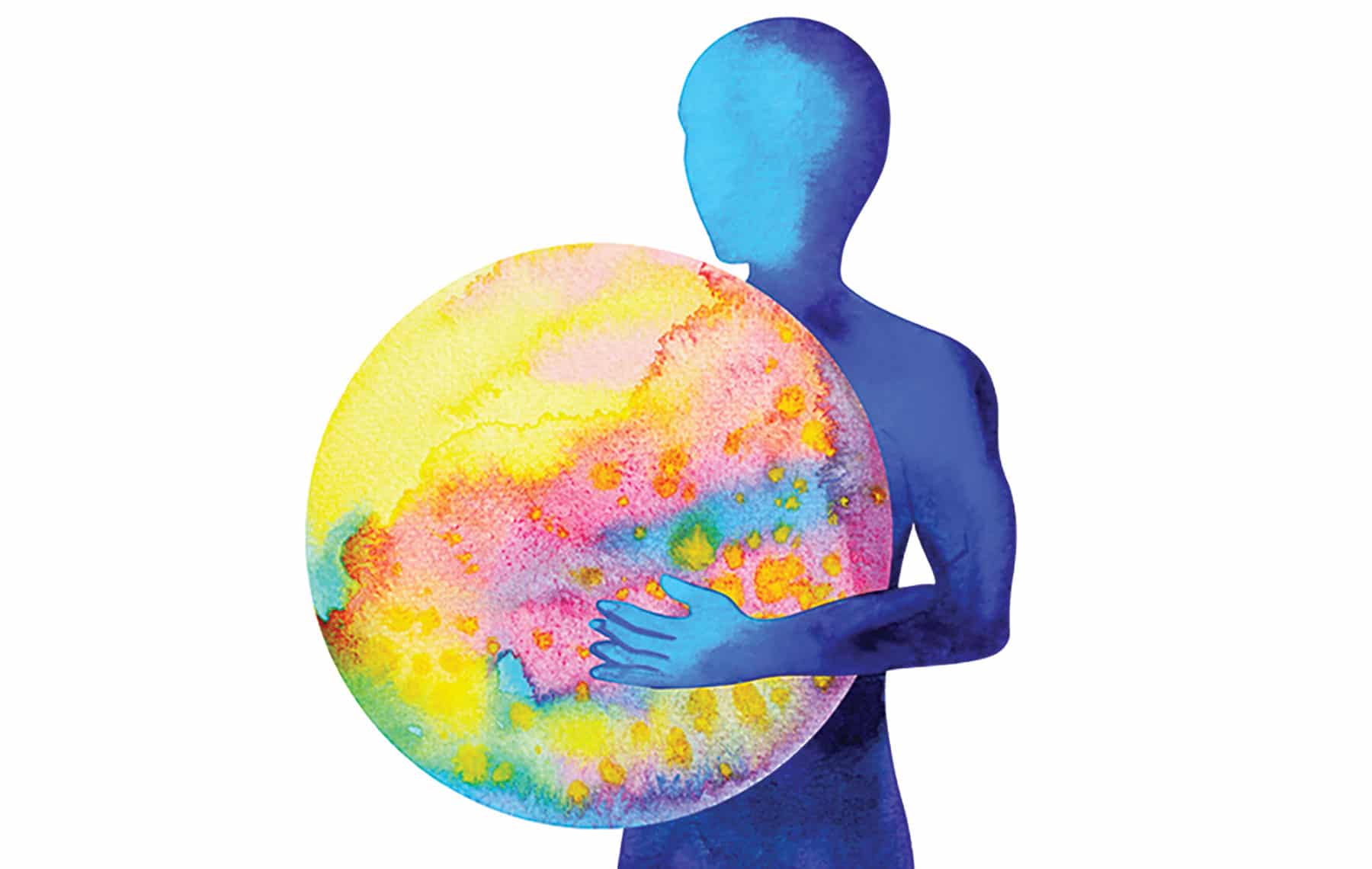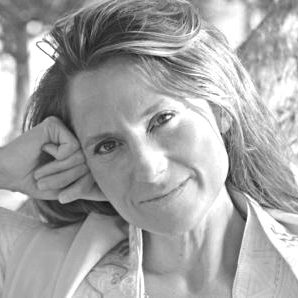
Revolution is complex and not for the fainthearted. I often have asserted that most of us are not meant to be Rev. Martin Luther King Jr. or Rabbi Abraham Joshua Heschel, yet the fate of the world rests upon the work of each and every one of us and the perfection of our individual path. The cynics among us might dismiss this assertion as another expression of the famed butterfly effect of chaos theory. Popularized through a remark by noted scientist Edward Lorenz (1917-2008), he presented this idea at a scientific conference almost 50 years ago: “Does the flap of a butterfly’s wings in Brazil set off a tornado in Texas?”
While Lorenz’s question might suggest that the kindness in picking up a phone and checking in with an elderly friend or dropping off a meal for a shut-in neighbor perhaps has the power to change the world, it won’t. However, it is a step in the right direction.
Judaism is built upon the concept of an interior experience of personal betterment through actions. It combines a study of past wisdom applied to refinement of our present actions to build progress for a better tomorrow. Judaism’s goal, fueled by ancient concepts of the end of days, redemption and a Messianic world to come, is to cultivate and refine ourselves, each of us, as a “K’li Kodesh,” a holy vessel.
This idea of personal transformation toward becoming a holy vessel in pursuit of “healing the world” is a core concept in Judaism. It asks each of us to engage in a method of self-disciplined reflection that has a long and noted history. It is called Mussar.
The word “holy” is one of the most prevalent words in all of Torah, and one that requires a lifelong curiosity to gain understanding. What does it mean to make ourselves holy? How do we do this? This idea of personal transformation toward becoming a holy vessel in pursuit of “healing the world” is a core concept in Judaism. It asks each of us to engage in a method of self-disciplined reflection that has a long and noted history. It is called Mussar.
Mussar, a contemplative Jewish practice, is achieved through a reflective process that deepens our self-knowing through an evaluative tool of behaviors called “middot.” In Hebrew, “middah” (the singular for middot) literally means “measure.” It’s not easy to look at our personal shortcomings. It is much more satisfying to take to the streets and demand others change before changing ourselves. In Mussar, change relies upon our personal fulfillment of our potential, as all of us are born with the capacity to acquire every middah through practice. Taking to the streets without such a sustained practice of inner growth is a formula for a firestorm. However, this takes work, and this work is both difficult and rewarding.

While tikkun olam in modern parlance is outward-facing — calling us into the streets and the world — Mussar faces inward. Beginning in our homes, Mussar spotlights individual behaviors, their impacts and interdependence with one another, and impact on family and community. Mussar views the perfection of our moral character as a formula to help heal the world.
According to Rabbi Ira Stone (founder of the Center for Contemporary Mussar), Mussar, commonly translated as “Jewish ethics,” is best translated as “discipline” (based on Proverbs 1:2) and presents a path of applying ethics and virtues to one’s life. Reading Stone’s translations of famous Mussar texts and experiencing a Mussar group lends itself to an embodied practice of Process Theology: to engage in a process of becoming, with one’s inner landscape as the dwelling place of God.
Stone connects the idea of how the concept of salvation serves as an expression for the objective of all of creation:
“According to [the late Rabbi Mordecai] Kaplan, God is the power that makes for salvation in the world. As abstract as that sounds, it is a fundamentally religious viewpoint — what it is saying is that the achievement of a perfectly peaceful and just world is the aim of creation and that there is some kind of power, as it were, that sets this creation on its course with the purpose of achieving this salvational status. It is not simply the big bang, but the big bang infused with goodness; Kaplan begs the question: ‘Where does that goodness come from?’ ”
In light of the pandemic, economic instability and civil unrest, Kaplan’s interpretation of Mussar as a call toward a communal salvation is more relevant than ever.
As we look outward at a broken world, Mussar invites us to consider the origins and nature of creation, and its personal connection with each of us as partners with creation toward a moral good. Indeed, Mussar propels us to go beyond just “praying with our feet” and asks we connect each footstep with our unique “Soulprint” as a continuation of the origins and course of creation.
In 2020 America, it seems as if we are on a wild water ride, spinning out of control toward chaos. People are dying. Homeless crowd our streets, parking lots and underpasses. Unemployment is at unprecedented levels. Businesses are closing. Partisanship incites a new civil war fought on Twitter feeds and in media rooms. America has lost its way in its journey of self-betterment and societal salvation.
Benjamin Franklin: Toward an ethical America
Ben Franklin’s eponymous autobiography offers a method for character building through “13 Virtues.” Later in life, Franklin lamented that his treatise on character was only half-baked — life got in the way, what with revolution, Constitution ratifying and abolition efforts; however, his offering of virtues present a foundation plan and method for how every American could improve himself or herself with the objective of the betterment of American society.
There may not be a scholarly connection between Franklin’s “13 Virtues” and Exodus 34:6-7 “13 Attributes of God,” but the parallels are clear; there is something unspoken when we reflect upon these characteristics that conditions us toward the betterment of oneself and the betterment of society. In Exodus, God utters these qualities of God after the sin of the Golden Calf as a reminder to Moses and Israel of who or what God is: “God! God: God is compassionate and gracious, slow to anger, abounding in kindness and faithfulness, extending kindness to the thousandth generation, forgiving iniquity, transgression and sin; yet, God does not remit all punishment, but visits the iniquity of parents upon children and children’s children, upon the third or fourth generations.”
In Torah, the ancients scribed for us a language that revealed a God through qualities of being: compassion, grace, slow to anger, kindness, faithfulness. These qualities are what we are asked to reflect upon as we move through a disciplined reflection of character accounting. Presently, there is talk in Los Angeles circles of “productive anger” and “sacred outrage.” While passion may fuel change, one might ask what personal experiences might dilute or foul the fuel for these efforts? When we take to the streets in protest, are our hearts actually broken open over the injustices toward our BIPOC (Black, Indigenous and People of Color) brothers and sisters? Or are we just brokenhearted from an earlier wound or pain from our own ancestral homes of brothers, sisters, mothers and fathers, whose need to heal has roots three or four generations deep?
Chesbon ha-nefesh: Accounting of the soul
For those of us who enter into the High Holy Days with a call to do this inner holy work, our Days of Awe begin with an “accounting of the soul.” However, with Mussar, the act of “accounting of the soul” is a year-round endeavor. A 19th-century pamphlet popularized this work, and Jewish scholars have affirmed since the mid-1800s that this early-modern Mussar work, “Sefer Cheshbon Ha-nefesh” (The Book of Spiritual Accounting) — a Hebrew work published in 1808 by early Eastern European Jewish enlightener Rabbi Menahem Mendel Lefin — has some connection to the “Virtue” writings of Ben Franklin.
Franklin’s list of virtues were temperance, silence, order, resolution, frugality, industry, sincerity, justice, moderation, cleanliness, tranquility, chastity and humility. In cheshbon ha-nefesh, Lefin’s list is equanimity, patience, order, decisiveness, cleanliness, humility, righteousness, frugality, diligence, silence, calmness, truth and separation. The parallels are apparent; however, a secular pursuit of virtue does not replace the existential hunger for an ineffable holiness. In any case, in 2020 America, Franklin’s call to cultivate a sense of personal accountability in service of a collective benefit is more relevant than ever.
The rise of the Mussar yeshiva
Rabbi Israel Salanter (1809-1883), credited as the founder of Modern Mussar, was noted for his independent rulings and moral acumen that informed Jews of his time how to navigate the cholera epidemic of 1848. In a 19th-century parallel to COVID-19-era innovations in halachah on use of technology favored over live Shabbat and holiday services “to save a life,” Salanter famously ate and drank on Yom Kippur to personally demonstrate the need to eat and drink for emergency health reasons. His legal rulings illuminate the elasticity of Torah law when refracted through ethical reasoning in ways that express the plasticity of Jewish law to remain relevant according to time and place.

Salanter’s disciples through the yeshiva he led promoted a Judaism rooted in Torah that shed light on matters of Jewish ethics in a modern context. These houses of study developed into an emerging modern yeshiva system for the Jewish Everyman; no longer were Jewish studies accessible to elite families or merely relegated to folk tradition. This alternative network of unique yeshivot arose, each with its own distinct methods and curriculum that focused on a disciplined practice of self-mastery in pursuit of holiness for a changing world in Europe, post-Jewish emancipation.
The yeshivot had great influence, and renewed interest in Talmud and text study arose. Additionally, in many of them, especially the yeshivot of Volozhin, the core curriculum spotlighted the advancement of Mussar’s famed disciplined ethical practices. The Torah Temimah writes of these students: “In Volozhin, Torah and derekh eretz [in this case, mores of contemporary society], walked hand in hand, neither one held captive by the other. It was the special achievement of the Volozhin student that when he left the yeshiva, he was able to converse with any man in any social setting on the highest intellectual plane. The Volozhin student was able to conquer both worlds — the world of Torah and the world at large.” Eventually, these schools failed, as Russia demanded more secular studies and mandated classes taught in Russian, and later reboots disrupted by pogroms resulted in eventual annihilation in the Shoah.
However, the impact of this yeshiva movement continued to influence the creation of the State of Israel and American Judaism, with influences radiating to the establishment of Yeshiva University and the Jewish Theological Seminary, where Rabbi Solomon Schechter assigned Mordecai Kaplan to translate an earlier Mussar text, Moses Hayyim Luzzatto’s “Mesillat Yesharim” (The Path of the Upright). Kaplan’s translation was published in 1936, just as many inheritors of this tradition were about to perish in the Shoah, and Judaism around the world sat shivah for what seemed to be decades, until the turning of the millennium.
The path into contemporary Mussar practice
As the alarm again awakens us to a changing world and calls on us to rise to this time of unprecedented civil unrest, it is clear that alongside this awakening comes the search for meaning and connection to something greater than our individual impact. However, instead of looking beyond ourselves, in an outward-facing effort to change others, we might benefit by considering that the first step to finding an answer lies within.
Mussar’s course of study, a curriculum disrupted almost 100 years ago, has experienced a renaissance over the past 20 years, and has emerged to help those of us on this path. Individuals continue to feel as if they “discovered” this rising network of Mussar study that flourishes in the progressive Jewish world, with communities of practice throughout the United States, Canada and elsewhere, with online classes through the Mussar Institute and the Center for Contemporary Mussar, among others. Contemporary translations of popular Mussar texts are included in the curriculum in most rabbinic seminaries, and students are tutored and encouraged to engage in personal Mussar practice.
For Kaplan, the work we do inwardly must be for the benefit of the public greater good.
However, are these lessons in the Mussar movement and its call for inner spiritual discipline fueling the work of tikkun olam or falling to it? What is the connection between the work of the inner landscape and the work of healing the world?
In Kaplan’s introduction to his translation of “Mesillat Yesharim,” arguably the foundation text of the modern-Mussar revival, Kaplan asserts, “Salvation occurs primarily on the corporate level, leading ultimately to the establishment of peace among nations. Each individual’s ethical behavior directly affects this collective mission positively or negatively. Collective salvation thus presupposes individual salvation.” Echoing the work of Franklin, it seems the connection of the personal work of Mussar for the benefit of a greater good is in order. In light of the pandemic, economic instability and civil unrest, Kaplan’s interpretation of Mussar as a call toward a communal salvation is more relevant than ever.
For Kaplan, the work we do inwardly must be for the benefit of the public greater good. Kaplan connects the concept of the yetzer harah (evil inclination) with acts of selfishness or “personal interest,” and the work of yetzer hatov (good inclination) as possessing an attentiveness toward collective benefit. For Kaplan, the inner work of Mussar is one of a personal accounting of the soul toward a corporate good. For Kaplan, it is this commitment to personal betterment that will, effectively, impact the continued betterment of society.
The practice of this work is not achieved solely at a public rally, protest or phone bank, but begins with a personal reckoning, with a small group of people holding one another personally accountable, and where vulnerabilities and our “personal uglies” are encouraged to find expression. In a Mussar group, individuals learn to focus on middot, such as generosity, equanimity and humility, and spend time with each middah as it relates to one’s life.

Anthropologist Alan Morinis, the founder of The Mussar Institute, describes Mussar as “a path of contemplative practices and exercises that have evolved over the past thousand years to help an individual soul to pinpoint and then to break through the barriers that surround and obstruct the flow of inner light in our lives. Mussar is a treasury of techniques and understandings that offers immensely valuable guidance for the journey of our lives. The goal of Mussar practice is to release the light of holiness that lives within the soul. The roots of all of our thoughts and actions can be traced to the depths of the soul, beyond the reach of the light of consciousness, and so the methods Mussar provides include meditations, guided contemplations, exercises and chants that are all intended to penetrate down to the darkness of the subconscious, to bring about change right at the root of our nature.”
Through these practices, the objective of a Mussar practitioner is to seek to remove these impediments from one’s personal spiritual curriculum to better serve the world. Morinis helps define a spiritual curriculum as involving the cultivation of an awareness around patterns of behavior that cycle through our lives and provides a concise image for understanding: “One might call [a spiritual curriculum] the karmic wall we continue to bash our head on.”
A Mussar practice is meant to cultivate such self-awareness in order to support our effort to “cycle up” in our lives and become more holy vessels of Divine Presence, ostensibly in service of a more just and peaceful world. Morinis’ work spotlights a personal relationship to holiness and godliness; quoting the Talmud, Morinis reflects upon how those living through a pandemic can learn from the rabbinic assertion that “a person who saves one life saves a whole world.”
“You can sit in the morning and read your newspaper and drink your coffee and see 130,000 died of COVID-19 and flip the page and say, ‘I need more coffee.’ ” This, according to Morinis, is the opposite of seeing a neshamah (soul) in the world, and it comes to bear on everything.
“If you don’t see that neshamah, as a world, you can minimize another. If you don’t see that other people are each individual, crucial embodiments of the divine presence, then you don’t wear a mask when you go outside. This is where these kinds of spiritual teachings really do show up. They underpin that which is built upon it. Unless there is a larger vision of teleology — that wearing a mask is a mandate, command, the way it is supposed to be — that it is more than just utilitarian — it makes it much more difficult for socially aware or ‘woke’ folks to privilege their reality of what their vision should be as opposed to anyone else’s.”
Instead of looking beyond ourselves, in an outward-facing effort to change others, we might benefit by considering that the first step to finding an answer lies within.
In other words, unless we live in a covenantal moral system where each of us agrees upon a higher standard of conduct and therefore, takes personal responsibility for one another’s well-being, the number of 130,000 dead will be a long-forgotten number, exponentially lower than the total fatalities. The age of COVID-19 clearly illustrates our interconnectedness and deserves a shofar call to “corporate awareness” of moral character perfection, as the most mundane choices we make as we assert our own self-determination potentially dictate who will live and who will die. But it doesn’t stop there: What does it matter what you think about your Black, Indigenous and people of color brothers and sisters if you have abused your brother, neglected your kids or parents, or harbor resentment toward your neighbor?
Mussar bids us to do our personal work first and, against trend, ties it to a religious moral system of interconnectedness. Mussar compels us to understand it is on each of us to go on a “God Journey” and define that experience for ourselves, in service of a collective good, which may or may not bring about collective redemption. Nonetheless, it may save a life or two, whether through absence of character assassination or wearing our personal protective equipment. And whether we are two people meeting each other in a remote part of Central Park; jogging in our hometown; walking while wearing a dark hoodie; losing our cool in the checkout line at Trader Joe’s; or passing a counterfeit $20 in a corner store, Mussar calls upon each human interaction to require we connect with our own inner-moral acumen before assigning judgment to another.
It is to be gravely considered that if America continues to navigate with a fracture to this internal system of self-regulation, continues to hold up a mirror to police officers, continues Karen call-outs and other forms of accusatory behaviors before a deep dive into our own internal foibles; if we continue to ignore a greater moral system intrinsic to the most aspirational pursuit of human character, for all people, we will fail.
Want to heal the world? The formula is clear: Heal our holy selves first and the world will follow.
Rabbi Lori Shapiro is the founder and artistic director of The Open Temple in Venice.























 More news and opinions than at a Shabbat dinner, right in your inbox.
More news and opinions than at a Shabbat dinner, right in your inbox.